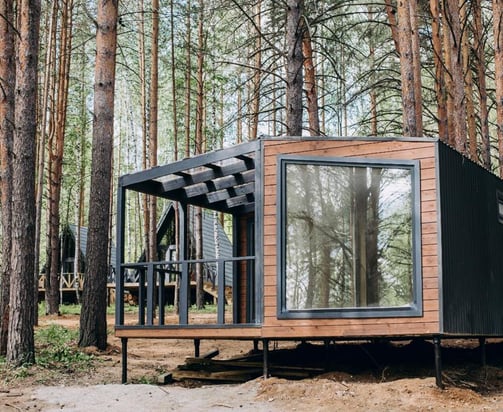Modular Homes
What are modular homes?
Modular Homes
Modular homes are a type of prefabricated building constructed from modules manufactured in a factory setting. These modules are then transported to the building site and assembled, resulting in a fast and efficient construction process.
The Rise of Modular Homes
The popularity of modular homes has surged in recent years, driven by several factors:
Technological advancements: Technological advancements have led to the development of more efficient and cost-effective manufacturing processes for modular homes.
Sustainability: Modular homes can be built with sustainable materials and practices, minimizing environmental impact.
Affordability: The cost of modular homes has become more competitive with traditional site-built homes due to economies of scale and optimized manufacturing processes.
Design flexibility: Modular homes offer a wide range of design options and can be customized to meet the specific needs and preferences of homeowners.


Advantages of Modular Homes:
Quick construction: Modular homes can be built significantly faster than traditional site-built homes, reducing the overall construction time and allowing for quicker move-in.
High quality: Modules are manufactured in a controlled factory environment, ensuring high quality construction and minimizing defects.
Energy efficiency: Modular homes are typically more energy-efficient than traditional homes due to the use of advanced insulation, energy-efficient appliances, and optimized building design.
Durability: Modular homes are built to withstand extreme weather conditions and are designed to last for many years.
Versatility: Modular homes can be used for various purposes, including single-family homes, multi-family apartments, commercial buildings, and even schools.
Disadvantages of Modular Homes:
Limited customization: While modular homes offer a range of design options, they may not offer the same level of customization as traditional site-built homes.
Transportation costs: The transportation of modules to the building site can add to the overall cost of the project, especially in remote areas.
Site preparation: The site where the modular home will be placed must be prepared and leveled, which can involve additional costs and time.
Stigma: Some people may perceive modular homes as being less sturdy or desirable than traditional site-built homes.
The Future of Modular Homes
The modular homes market is expected to experience significant growth in the coming years, driven by increasing demand for affordable, sustainable, and quickly constructed housing solutions. Technological advancements and innovative design solutions are likely to further enhance the appeal and acceptance of modular homes.
If you are interested in building a modular home, visit the KOHI.BG website to learn more: https://prefabhouses.shop/
Besides KOHI.BG, there are many other companies on the market offering modular homes. When choosing a manufacturer, it is important to:
Compare offers from different companies.
Read reviews from real customers.
Find out about the warranties provided by the manufacturer.
